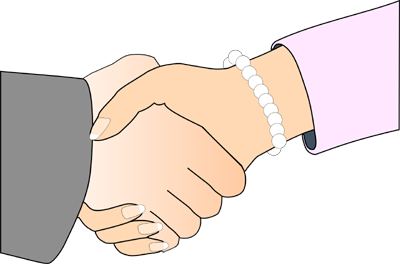The Manipulation Of Evidence-Based Medicine
THE MANIPULATION OF EVIDENCE-BASED MEDICINE (ISSUE 115)
By Diane Gold
HABIT OF BELIEVING
 It is always a good idea to trust, to believe the next person, give credence to what we read, being astute when credentialing who’s saying what and knowing what authors are attached to an agenda other than truth is present.
It is always a good idea to trust, to believe the next person, give credence to what we read, being astute when credentialing who’s saying what and knowing what authors are attached to an agenda other than truth is present.
This means it’s important to keep in mind,
“Everybody wants a comfortable lifestyle, but what are you going to do for it? Where do you draw the line?”
said by Brad Murawski, a computer specialist from Troy, NY, familiar with scams and hacking, when polled by GfK and AP about trust.
I think most people want to live clean lives, where we would be proud to tell our children every decision we have ever made. But egoism and greed can lead us to deceive, omit and distort. And once we’re in the habit of doing our habit of ego and greed; we’re doing our habit of ego and greed.
How many times have we convinced ourselves that:
1) because of all the work we do, it’s okay to falsify the hours we invoice to a client,
2) because of all the money our employer makes, it’s fair to take home office supplies or make copies of our completely unrelated creative project using company copiers,
3) if we support someone’s project, that someone will support ours; so, it’s acceptable to support what we don’t believe in.
The last of these is the most common way that medical information gets corrupted, as far as I can see.
EVIDENCE-BASED MEDICINE DEFINED
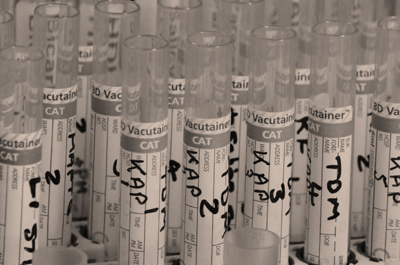 Evidence-based medicine is the use of proof or high quality information and research in medicine, the science of prevention, diagnosis and treatment of a disorder of function, often called disease. Factual testing is used to assess benefits and risks of specific treatments prescribed by learned people in the medical field. How many times does one academic support another’s study, body of work, thesis – even overlooking its controversy – for the primary purpose of getting support back, be it money or editorial byline?
Evidence-based medicine is the use of proof or high quality information and research in medicine, the science of prevention, diagnosis and treatment of a disorder of function, often called disease. Factual testing is used to assess benefits and risks of specific treatments prescribed by learned people in the medical field. How many times does one academic support another’s study, body of work, thesis – even overlooking its controversy – for the primary purpose of getting support back, be it money or editorial byline?
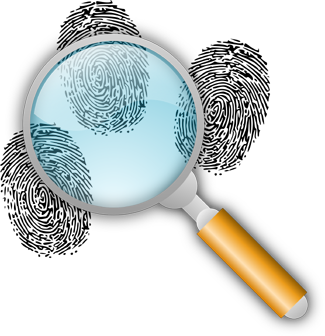 We, especially in the Western World, but common everywhere, have developed the habit of believing that, if a clinical trial has taken place, if a certified doctor has uttered it, if a governmental agency assigned to evaluate and cure illness has said it, if our pharmaceutical companies claim it (since they are so very regulated by the FDA and other government agencies), if it’s published in a medical journal; the information publicized from this event must be ethical, honest, conscientious, and, most of all, clinically based. This is a strong habit that we have been repeating since we were young, having been taught to trust doctors, nurses and other medical personnel as well products from the wonder drug companies whose breakthrough can cure disease.
We, especially in the Western World, but common everywhere, have developed the habit of believing that, if a clinical trial has taken place, if a certified doctor has uttered it, if a governmental agency assigned to evaluate and cure illness has said it, if our pharmaceutical companies claim it (since they are so very regulated by the FDA and other government agencies), if it’s published in a medical journal; the information publicized from this event must be ethical, honest, conscientious, and, most of all, clinically based. This is a strong habit that we have been repeating since we were young, having been taught to trust doctors, nurses and other medical personnel as well products from the wonder drug companies whose breakthrough can cure disease.
The term, evidence-based, is the current term for irrefutable proof, documentation based on science. What has happened out of greed and ego is that there is not one body of standard regulators whose job or future job does not depend upon their regulating. There is not one standard for study parameters; when articles are published, publishers take big money to print; when drugs are approved or in process, pharmaceutical companies working with academic institutions hire ghostwriters to write favorable reports so that the FDA will be encouraged to approve and doctors will be convinced to prescribe medicines based on what can only be called marketing.
How can evidence-based medicine not contain flaws when doctors and researchers are beholden to drug companies: for their continuing education, for the perks that drug companies give them – like hotel and air fare to conferences. Some doctors even work for the drug companies instructing other doctors in what drug to use. (Does your doctor take money? One of mine does, and he doesn’t believe what he teaches is influenced by his paycheck or end of year bonus based on number of prescriptions written).
DATA SOURCE
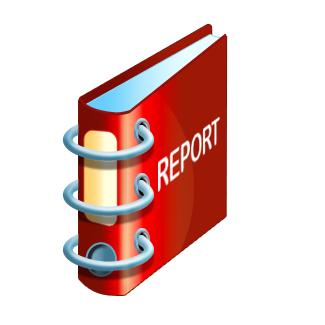 Medical professionals incorporate information of the latest experiments and trials along with their own research, college research and academic experience to make decisions.
Medical professionals incorporate information of the latest experiments and trials along with their own research, college research and academic experience to make decisions.
In all circumstances, we are presuming the information in our tool kit has been derived through truthful, ethical and legitimate means. It comes to us as follows:
1) In reputable medical journals;
2) Through academic research reports;
3) By lecture from professionals and speakers at conferences;
4) Through summary of a research abstract;
5) Through reading the entire published article if there is time for the whole read and if we pay to subscribe to the publication;
6) Through promotional marketing materials publicizing a drug or technique;
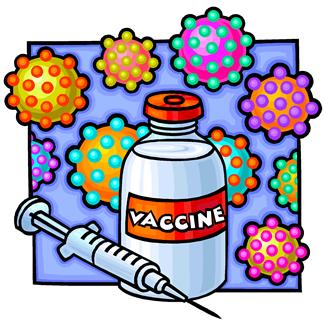 7) From pharmaceutical representatives, whose companies often times are the sponsors and controllers of the clinical trials and the data published.
7) From pharmaceutical representatives, whose companies often times are the sponsors and controllers of the clinical trials and the data published.
8) Socially at lunch or golf with colleagues;
9) Across the dinner table at a family of doctors or medical professionals.
10) At monthly or quarterly lectures given by doctors who are paid by pharmaceutical manufacturers.
11) Through media attention to failed patients who are damaged or die as a result of information withheld from unpublished clinical trials.
12) In medical schools that get large funding, possibly enough money for entire laboratories, from various pharmaceutical companies.
We, the medical community, are given much opportunity for bias. We, the public including the student, are given much opportunity for bias. How do we know where the evidence is based?
OUR HABIT OF INFORMATION GATHERING
We, humans, and medical personnel in particular, pick up information when we hear it, because we are investigative. We have a habit of listening to information, even when we are not listening to it and, as astute individuals, will remember random information even if we are not able to remember where we heard about it. This phenomenon can lead the best intentioned professionals to validate or parrot information that has been disseminated for marketing purposes or that has no clinical protocol attached to it.
The same happens to plain, old non-medically trained individuals. We hear a commercial on TV, and, if it’s catchy enough, the brand being advertised sticks in our mind. Or a doctor has samples of various products that we see lying around the office, so we believe the product must be good. Or one person has her treatment paid for by a pharmaceutical company and it works; as happens often, that person shouts out her success more loudly than the 100 people who had adverse reactions to the same treatment.
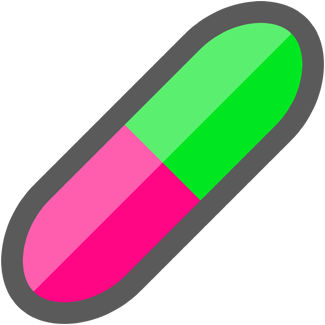 Of course, it is possible to hear about a one-shot treatment occurrence that absolutely saved a patient’s life that was paid for by a company or whose marketing is the reason we heard about it. And, if we are this patient, we are thankful and ecstatic and swear by this one single, random, non-duplicable effort because it saved us and we live. This is a dangerous way to get information, though.
Of course, it is possible to hear about a one-shot treatment occurrence that absolutely saved a patient’s life that was paid for by a company or whose marketing is the reason we heard about it. And, if we are this patient, we are thankful and ecstatic and swear by this one single, random, non-duplicable effort because it saved us and we live. This is a dangerous way to get information, though.
But, in general, we use the data sources listed above and our own good judgment thrown in. If we are not employees of the research sponsor, which can be the pharmaceutical company or the university whose board members are on both boards or connected to someone with a financial interest; we will rarely have access to unpublished research information, since all of it belongs to the originating sponsor as part of the sponsorship arrangement. We will also not know how accurate the investigative reporting has been.
WHERE DOES THAT LEAVE OUR ACCURACY AND UNDERSTANDING?
 We come back to trust, which, as we’ve said, is good. As long as we add in all the factors that can bias evidence, we can evaluate whether the results of the evidence-based medicine we so cherish have any basis in profit or furthering political careers or paving the way for employment at a pharmaceutical company.
We come back to trust, which, as we’ve said, is good. As long as we add in all the factors that can bias evidence, we can evaluate whether the results of the evidence-based medicine we so cherish have any basis in profit or furthering political careers or paving the way for employment at a pharmaceutical company.
Should we conclude that the research in front of us was conducted for the purpose of furthering humanity, we can hope for the best and still judge for ourselves. Most studies start out with good intentions, and the researchers involved usually demand pure science. But research costs money, and sponsorship usually comes with promises of non-disclosure and the sponsor’s ability to change study parameters that will manipulate the data.
CONCLUSION
 There is lots of medical research both in academia and in companies in the pharmaceutical industry, from medical student projects, from already working doctors and medical professionals that is outstanding, amazing, monumental, life changing, life saving, cooperatively integrated with every other discipline that exists, evidence-based for real with no prejudice based on agenda that is the pure truth. Our arms go out to you in thanks, praise and commendation. Keep up the great work. We are counting on you.
There is lots of medical research both in academia and in companies in the pharmaceutical industry, from medical student projects, from already working doctors and medical professionals that is outstanding, amazing, monumental, life changing, life saving, cooperatively integrated with every other discipline that exists, evidence-based for real with no prejudice based on agenda that is the pure truth. Our arms go out to you in thanks, praise and commendation. Keep up the great work. We are counting on you.
But there are those of us who, because we wanted a better life, to send our kids to a better college or just because we wanted the money for the research that we love to do, crossed that line.
ACTION STEPS
If the line concerns the safety of human lives, such as having knowledge of unpublished trials that prove a negative reaction in humans;
1) Please consider crossing the line back over to the right side again. If we are a company or an academic community, do we not want to show our children how to be good citizens? If we are individuals, do we not want to be the examples our children will follow?
The manipulation of evidence-based medicine exists. But the truth seekers are also here.
2) Let us continue to strive for knowing the difference, difficult as it is, and to encourage the line-crossers to cross back over.
We have all (well, most of us, anyway) crossed some line, whether it’s been to embellish on a resume, let a research student do our research to which we put our name, or whether we took a job with an unethical company.
We owe it to each other to keep medicine clean so that the principles of evidence-based medicine can prevail.
3) Let’s be aware of factors that can taint, and let’s be good examples of truth.
![]()
FEEDBACK
We value your feedback very much.
Please leave a comment below.
Please LIKE us on the website and at WarriorsOfWeight on Facebook. Thanks.
![]()
DIANE GOLD, AUTHOR
Diane Gold, Founder of Warriors of Weight, Turning Habits Into Health, is a mentor in tai chi, kung fu and meditation, a music, fitness and stress expert, dedicated mom, studying plant-based nutrition and habit change.
She believes in people’s ability to be truthful and ethical. She also knows that habits can make us who we are not. She says,
“Be trusting, but be diligent. Know people for the emotions they possess.
“We all have feelings that can trap us or not, depending upon how we control our habit mechanism and our desires. There is never really a steadfast good reason to be dishonest. When our children are starving, we may choose to steal bread. Other than this desperation, we are responsible for truth.
“We know people who have chosen medicine started out to help their flock. Let us point them in that direction again and be diligent in seeking out true evidence-based medicine.”
![]()

